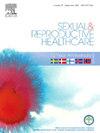Navigating cannabis use during pregnancy: life trajectories, relationships, and contextual influences
IF 1.7
3区 医学
Q3 PUBLIC, ENVIRONMENTAL & OCCUPATIONAL HEALTH
引用次数: 0
Abstract
Background
In Canada, between 3 and 7 % of women have reported using cannabis during pregnancy despite public health recommendations. While fetal risks are well researched, the socio-economic, psychological, and environmental factors shaping cannabis use before and during pregnancy remain underexplored.
Method
Drawing on semi-structured interviews with eighteen women who consumed cannabis while being pregnant in Québec (Canada), this interpretive study explores the meanings pregnant women attach to cannabis consumption throughout their lives and pregnancy, the factors conditioning their decisions, and the impact of their choices on their wellbeing.
Results
Women’s decisions to reduce, cease, or continue cannabis use during pregnancy are shaped by their life trajectories, gendered experiences, and broader socio-environmental influences. Pregnancy can serve as a motivation to stop or reduce consumption, but for some, especially those with a deep connection to cannabis, pressure for abstinence can generate stress and anxiety. Moreover, decision-making regarding cannabis use is tied to gender norms and inequalities that shape the meanings pregnant persons attribute to their own use during pregnancy.
Conclusion
This research highlights how the interplay of long-term social, relational, and environmental factors shapes cannabis use during pregnancy. It underscores the need for tailored, non-stigmatizing public health interventions that acknowledges this complexity, while also addressing stress, anxiety, and informational gaps. Providing harm reduction strategies and context-sensitive support systems can help ensuring that pregnant women receive compassionate, evidence-based care to navigate cannabis use during pregnancy.
怀孕期间大麻的使用:生活轨迹、关系和环境影响
在加拿大,据报告有3%至7%的妇女不顾公共卫生建议在怀孕期间使用大麻。虽然胎儿风险已得到充分研究,但影响怀孕前和怀孕期间使用大麻的社会经济、心理和环境因素仍未得到充分探讨。方法采用半结构化访谈的方式,对加拿大qusamubec地区18名怀孕期间吸食大麻的女性进行调查,探讨孕妇在其一生和怀孕期间吸食大麻的意义、影响其决定的因素,以及其选择对其健康的影响。结果妇女在怀孕期间减少、停止或继续使用大麻的决定受到她们的生活轨迹、性别经历和更广泛的社会环境影响的影响。怀孕可以成为停止或减少吸食大麻的动机,但对一些人来说,尤其是那些与大麻有很深联系的人,戒断的压力会产生压力和焦虑。此外,关于大麻使用的决策与性别规范和不平等有关,这些规范和不平等决定了孕妇在怀孕期间对自己使用大麻的理解。结论:本研究强调了长期社会、关系和环境因素如何影响怀孕期间大麻的使用。它强调需要有针对性的、非污名化的公共卫生干预措施,承认这种复杂性,同时也解决压力、焦虑和信息差距。提供减少伤害战略和对情况敏感的支持系统,有助于确保孕妇在怀孕期间获得富有同情心的循证护理,以指导其使用大麻。
本文章由计算机程序翻译,如有差异,请以英文原文为准。
求助全文
约1分钟内获得全文
求助全文
来源期刊

Sexual & Reproductive Healthcare
PUBLIC, ENVIRONMENTAL & OCCUPATIONAL HEALTH-
CiteScore
2.70
自引率
5.60%
发文量
73
审稿时长
45 days
 求助内容:
求助内容: 应助结果提醒方式:
应助结果提醒方式:


